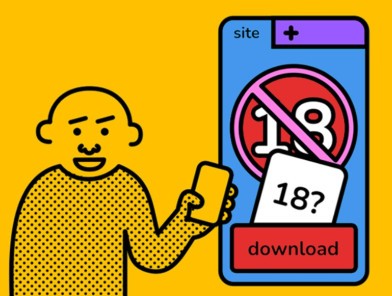Escorting is glamorous on the surface. The beautiful outfits, luxurious settings, and exciting encounters often make it look effortless from the outside. But anyone who has spent time in this line of work knows that behind the smiles and polished appearances, there can be an invisible weight. Burnout doesn’t announce itself with a dramatic entrance. It creeps in, quietly at first, as fatigue, stress, and emotional strain. Learning how to recognize it, manage it, and prevent it is essential for anyone who wants longevity in this profession.
Burnout doesn’t mean you’re weak or failing. It’s a human response to high emotional demand, irregular schedules, and constant social performance. Just like any other demanding career, escorts are susceptible, especially because much of the work involves emotional labor that is rarely acknowledged. The first step in preventing burnout is understanding what it looks like in your own life.
Recognizing the Signs
Burnout can manifest in many ways, and the signs are often subtle. You might start feeling drained even after a restful night, notice that your patience is shorter with clients, or find yourself losing excitement for work you used to enjoy. Emotional exhaustion is often accompanied by physical symptoms headaches, muscle tension, digestive issues, or trouble sleeping.
Some days you might feel like you’re running on autopilot. You show up, perform your role, and leave, but the spark you once had is missing. These are early warning signs, and they shouldn’t be ignored. The sooner you acknowledge them, the easier it is to take steps to protect your mental, emotional, and physical health.
Understanding Emotional Labor
Emotional labor is one of the unique challenges of escorting. Every interaction demands empathy, attentiveness, and social intelligence. Clients may carry their own stress, anxieties, or expectations, and as an escort, you absorb some of that energy. Over time, constantly managing your own emotions while navigating those of others can be exhausting.
The key is learning to separate your personal feelings from the professional role. This doesn’t mean being cold or mechanical it means finding boundaries that allow you to be present without internalizing every emotion around you. Practices like reflection after sessions, journaling, or talking with a trusted friend or mentor can help you process the emotional weight.
Scheduling Wisely
One of the biggest contributors to burnout is overworking. It’s tempting to say yes to every booking, especially when the pay is good or the clients are appealing. But overextending yourself can quickly lead to exhaustion.
Building a schedule that includes regular downtime is crucial. This might mean blocking off days for rest, setting limits on late-night bookings, or spacing out consecutive appointments. When your body and mind have time to recover, each session becomes more sustainable and enjoyable.
Creating Boundaries
Boundaries are not optional they’re essential. Clear communication with clients about your limits, availability, and services helps prevent misunderstandings and reduces stress. Boundaries aren’t just about what you will or won’t do; they’re also about your mental space.
You might have rules about last-minute bookings, personal contact outside work, or physical and emotional comfort levels. The important thing is consistency. Clients will respect you more when they understand your boundaries, and you will respect yourself by maintaining them.
The Role of Physical Health
Physical health is deeply intertwined with emotional resilience. Adequate sleep, nutritious meals, regular exercise, and hydration are not indulgences they’re necessities. The nature of escorting often involves late nights, long hours on your feet, or travel, all of which can take a toll.
Even small habits can make a huge difference. A 20-minute morning stretch, a balanced breakfast, or a brisk walk between appointments can recharge your energy and maintain your stamina. Treat your body as a partner in your work, not just a vehicle for your appearance.
Mental Health Matters
Mental health care is critical. Many people in the escort industry face stigma or isolation, which can make seeking support harder. Yet mental health professionals, support groups, and trusted peers are invaluable resources. Therapy isn’t just for crises it’s a tool for maintaining clarity, emotional balance, and coping strategies.
Meditation, breathing exercises, and mindfulness practices also help reduce stress. Even five minutes a day can anchor you and provide a mental reset between sessions. Regular mental health maintenance is preventive it keeps small stresses from accumulating into full-blown burnout.
Handling Stress During Appointments
Stress can spike during a session, even with experienced escorts. Perhaps a client is anxious, a booking runs over time, or the environment is unpredictable. Developing strategies to manage in-the-moment stress can prevent emotional depletion.
Techniques include grounding yourself by focusing on your senses, practicing brief mindfulness, or using subtle physical cues to release tension. Remember: you set the tone of the encounter. A calm, confident presence not only makes the client comfortable but also preserves your own emotional energy.
Social Support and Community
Loneliness is a major factor in burnout. Even if your job involves constant interaction, it may not always feel fulfilling. Building a network of supportive peers can make a tremendous difference. Talking openly about challenges, sharing experiences, or simply knowing that others understand your reality reduces isolation.
Online communities, local support groups, or trusted friends within the industry can offer advice, camaraderie, and emotional validation. Surrounding yourself with people who “get it” reminds you that you are not alone, and that your feelings are normal and respected.
The Importance of Hobbies and Interests
Having a life outside of work is vital. Hobbies, creative outlets, social activities, or learning new skills provide balance and perspective. When your identity isn’t solely tied to escorting, stress from work doesn’t overwhelm you as easily.
Whether it’s painting, dancing, reading, or sports, dedicating time to passions outside of work nurtures your soul. It replenishes energy that can then be reinvested in your work, allowing you to engage fully with clients without feeling drained.
Financial Boundaries
Financial pressure is another stressor that can lead to burnout. It’s tempting to accept every booking for extra income, but this can backfire. Establishing financial boundaries, budgets, and savings goals can reduce anxiety about money, allowing you to decline requests that compromise your well-being.
Tracking income and expenses, planning for slow periods, and setting aside emergency funds create security. Financial stability gives you the power to choose clients and bookings based on preference and health rather than necessity, which is a crucial step in preventing burnout.
Travel and Work-Life Balance
Escorts who travel frequently, whether locally or internationally, face unique stressors. Jet lag, new environments, and disrupted routines can compound burnout risk. Preparing for travel, maintaining routines where possible, and carving out personal time during trips are essential.
Pack thoughtfully, plan breaks, and ensure you have familiar comforts wherever you go. Even small touches like a favorite tea, playlist, or journal help ground you and reduce the mental load of constant movement.
Practicing Self-Compassion
Perhaps the most overlooked tool against burnout is self-compassion. The escort industry demands high performance, constant attention, and emotional labor. It’s easy to be self-critical or feel guilty for needing rest.
Learning to treat yourself with the same kindness you show clients is transformative. Accept that fatigue, mistakes, or bad days are human. Celebrate small victories, acknowledge your effort, and recognize that taking time for yourself is not selfish it’s necessary for sustainability.
When to Seek Help
Burnout is manageable, but ignoring it can escalate into depression, anxiety, or chronic health issues. If you notice persistent exhaustion, detachment, or declining enjoyment of work, professional support is important. Psychologists, counselors, or peer support networks specialized in sex work or high-emotional-labor professions are excellent resources.
Early intervention prevents small stressors from snowballing. Asking for help is not a weakness; it’s a strength that preserves your long-term well-being and career longevity.
Creating a Personalized Self-Care Plan
Every escort’s needs are unique. Developing a personalized self-care plan ensures that mental, emotional, and physical health are regularly nurtured. This could include:
-
Structured days off and downtime
-
Regular exercise routines
-
Mental health check-ins
-
Boundaries for clients and bookings
-
Hobbies and social time
-
Travel preparation strategies
Review and adjust your plan as your career evolves. A dynamic plan grows with you, accommodating shifts in workload, client type, and personal needs.
The Reward of Sustainability
Sustainable work practices aren’t just about avoiding burnout they enhance your career, reputation, and quality of interactions. When you’re rested, emotionally balanced, and physically healthy, clients notice. The experience becomes richer, more engaging, and more enjoyable for both parties.
Long-term success in escorting is built on a foundation of self-respect and care. Prioritizing your well-being isn’t optional it’s the secret to longevity and satisfaction in a demanding, rewarding profession.
Maintaining Balance and Well-Being
Avoiding burnout as an escort is not a one-time fix; it’s an ongoing practice. It involves awareness, boundaries, self-compassion, support networks, and a commitment to personal health. By taking proactive steps, escorts can maintain energy, passion, and emotional clarity, ensuring that each encounter is rewarding rather than draining.
Your work is valuable, your time is precious, and your well-being is non-negotiable. Protect it, nurture it, and the rewards both personal and professional will follow.













